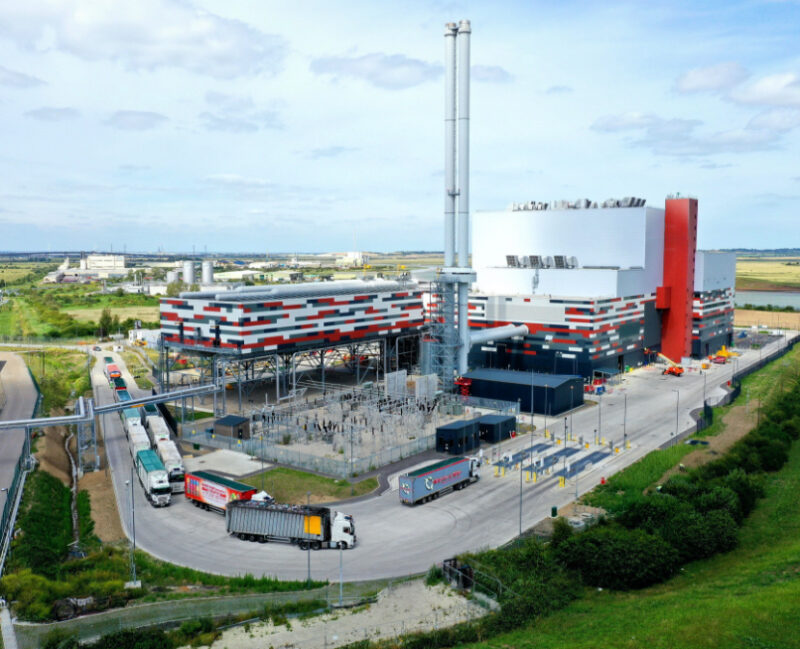
Our Net Zero Transition Plan lays out our vision to deliver carbon removals and how we will decarbonise our business, while helping communities and other industries decarbonise too.
Backed by an investment programme worth over £1.7 billion, the Net Zero Transition Plan sets out enfinium’s pathway to achieve net zero across our Scope 1 and 2 emissions by 2033, significantly ahead of the waste industry target of 2040. These plans, driven by the installation of carbon capture and storage (CCS) technology across our sites across the UK, will enable us to generate 1.2 million tonnes of durable carbon removals per year by 2039.
A technical roadmap to Net Zero

Around 50% of the unrecyclable waste produced by the UK is made up of biogenic content – including organic material such as waste food, plants and soiled paper or card – which has already naturally absorbed CO2 from the atmosphere. Installing CCS technology at an energy from waste facility enables this CO2 to be permanently captured and stored rather than released back into the atmosphere, resulting in a net carbon removal from the atmosphere1. The Climate Change Committee’s Carbon Budgets make clear that the UK needs to deliver carbon removals at scale to achieve its Net Zero target.2

Currently, every year the UK generates around 27 million tonnes of waste that cannot be recycled or reused. By 2042, even if the UK hits its ambitious recycling targets, there will still be around 17 million tonnes of unrecyclable waste, according to Government figures.3 enfinium’s plan is critical if the UK is to decarbonise this waste for decades to come.
In addition to delivering carbon removals through the application of CCS, enfinium is also exploring low carbon electrolytic hydrogen for transport and industrial users and create heat networks spanning cities and industrial users. The Net Zero Transition Plan has been independently verified by independent engineering consultancy Arup.
The full pdf of the report can be viewed here.

We are proud that all of our sites sit among the highest rated facilities in the UK, for overall net carbon benefit for every tonne of waste processed.
View our facilities